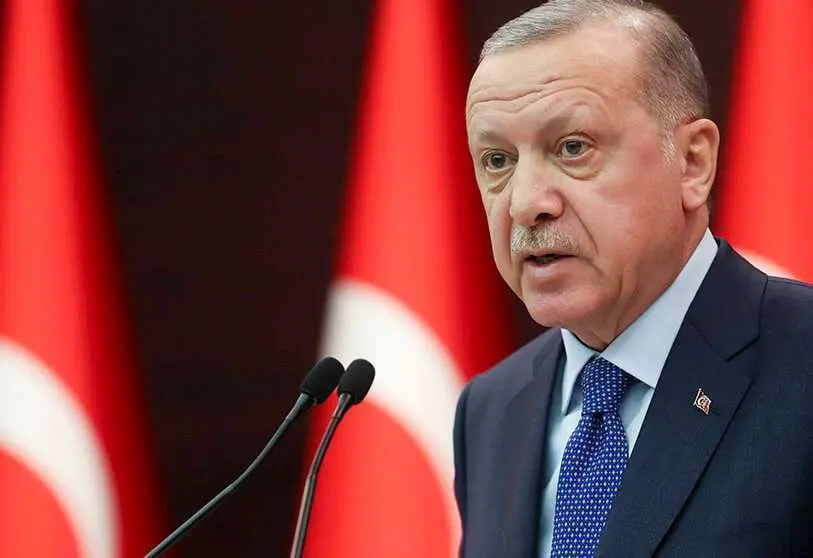Erdogan's purge of the Turkish Army continues

A few weeks ago, it was the fourth anniversary of the attempted coup d'état that further altered Turkey. Since then, the country's president, Recep Tayyip Erdogan, has been conducting a campaign of harassment and shoot-down against all those he suspects may have been involved. The continuous arrests and dismissals, in an attempt to remove any loopholes in Fethullah Gülen's clerical organization (FETÖ), which Ankara accuses of being behind the attempted coup d'état, have resulted in arrest warrants being issued for more than 150,000 people, including officials, members of the army and civilians, over the years.
Erdogan has continued to liquidate the leaders of the Turkish army and replaced them with people close to and loyal to him. This time, he has decided to appoint 127 generals and admirals to the armed forces. According to the Turkish newspaper Yeni Safak, the new senior officers of the Armed Forces have been appointed, including the head of the Land Forces, General Metin Gharraq. On 28 July, the Turkish President issued a decision to refer the military commanders of the Gendarmerie and Coast Guard forces.
These dismissals and appointments came days after a meeting chaired by Erdogan and the Supreme Military Council, which decided to dismiss several army leaders. During this meeting, the Turkish president decided to overthrow 30 generals and admirals.
In early June, Turkish security forces arrested more than 200 people in operations linked to cleric Gülen. Turkish prosecutors issued arrest warrants for more than 230 people, including 200 serving military personnel.
According to Turkish Defence Minister Hulusi Akar, more than 19,500 military personnel have been dismissed since July 2016, and 4,562 have been completely expelled since the state of emergency was lifted in 2018.
In recent years, Turkey has witnessed a significant decrease in the number of army colonels, following the transfer of many of them into retirement, as the length of service of serving colonels in the armed forces was reduced from 31 to 29 years.
The Ankara government blames Gülen, who has lived in the United States since 1999, for the failed coup d'état of 2016, which left 250 people dead. Gülen and Erdogan were political allies until the police and prosecutors launched a corruption investigation against several senior members of the executive in 2013. That's when Erdogan accused the clergyman of conspiring against his government and began a campaign of arrests.
It's not just non-Erdogan military people who are being persecuted. The International Press Institute has reported that more than a hundred journalists are still in prison and organisations such as Reporters Without Borders are denouncing these detentions.
The Turkish police are also continuing their persecution of members of the opposition People's Democratic Party (HDP), accused of links with the Kurdistan Workers' Party (PKK). The PPK is considered a terrorist force by Turkey, the United States and the European Union, and Erdogan's relationship with the HDP has been used to carry out a purge against members of this left-wing, pro-Kurdish formation.








